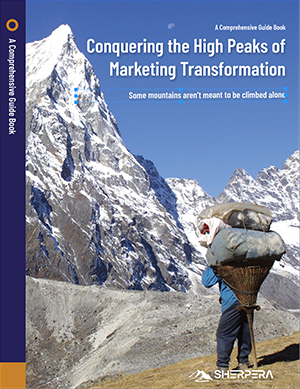Welcome to our article on 10 proven strategies to boost hotel bookings and maximize revenue. In a competitive market, hotels need effective strategies to stand out and attract MORE guests. Whether you run a small boutique property or a large chain, these tips will help you take your hotel's bookings to the next level.
In this article, we'll explore a variety of tactics to optimize your online presence and increase your hotel's visibility. From leveraging the power of social media and user-generated content, to optimizing your hotel website for search engines and utilizing targeted advertising campaigns, we've got you covered.
We'll also delve into the importance of guest reviews and testimonials, as well as the role of personalization and guest loyalty programs in driving bookings and revenue.
By implementing these strategies, you'll not only increase your hotel bookings but also boost customer satisfaction and loyalty, leading to repeat business and positive word-of-mouth referrals.
So, whether you're looking to attract more leisure travelers, business guests, or both, these proven strategies will help you maximize your hotel's revenue and ensure ongoing success in the hospitality industry.
The Importance of Boosting Hotel Bookings and Maximizing Revenue
In today's highly competitive hospitality industry, it is essential for hotels to find ways to increase bookings and maximize revenue. With the rise of online travel agencies and booking platforms, guests have more options than ever before when it comes to choosing accommodation. This means that hotels need to find ways to differentiate themselves and capture the attention of potential guests.
Understanding Your Target Audience and Their Preferences
One of the first steps in boosting hotel bookings is to understand your target audience and their preferences. By conducting market research and analyzing guest data, you can gain valuable insights into who your ideal guests are and what they are looking for in a hotel.
Consider factors such as demographics, travel preferences, and interests. Are you targeting leisure travelers, business guests, or both? Once you have a clear understanding of your target audience, you can tailor your marketing efforts and offerings to meet their needs and preferences.
Optimizing Your Hotel Website for Search Engines
In today's digital age, having a strong online presence is crucial for attracting guests and increasing bookings. One of the key components of a successful online presence is having a well-optimized hotel website. This means ensuring that your website is easily discoverable by search engines and appears high in search engine results pages (SERPs) when potential guests are searching for accommodation.
To optimize your hotel website for search engines, start by conducting keyword research to identify the terms and phrases that potential guests are using when looking for accommodation. Incorporate these keywords naturally into your website's content, including page titles, meta descriptions, and headers. Additionally, ensure that your website is mobile-friendly, as an increasing number of travelers are using mobile devices to book accommodation.
Creating Compelling and Informative Hotel Descriptions
When it comes to attracting potential guests, your hotel's descriptions play a crucial role. A well-crafted hotel description can capture the attention of potential guests and entice them to book a stay at your property. To create compelling and informative hotel descriptions, focus on highlighting your hotel's unique features and amenities.
Consider what sets your hotel apart from the competition. Do you offer stunning views, luxurious spa facilities, or award-winning dining options? Showcase these features in your descriptions and use descriptive language to paint a picture of the experience guests can expect when staying at your hotel.
Utilizing Online Travel Agencies and Booking Platforms
Online travel agencies (OTAs) and booking platforms have become a popular choice for travelers when it comes to booking accommodation. These platforms offer convenience and access to a wide range of options, making them an important channel for hotels to leverage.
To maximize your hotel's visibility and bookings on OTAs and booking platforms, ensure that your property is listed on popular sites such as Booking.com, Expedia, and Airbnb. Optimize your listings by including high-quality photos, detailed descriptions, and competitive pricing. Additionally, consider offering exclusive promotions or discounts for guests who book directly through your hotel's website to encourage direct bookings.
Implementing Effective Pricing and Discount Strategies
Pricing plays a crucial role in attracting guests and maximizing revenue. Implementing effective pricing and discount strategies can help you optimize your hotel's revenue and occupancy rates. Consider factors such as seasonality, demand, and competitor pricing when setting your rates.
One strategy to consider is dynamic pricing, which involves adjusting your rates based on demand and availability. By offering lower rates during off-peak periods or last-minute discounts, you can attract price-sensitive guests and fill vacant rooms. Additionally, consider offering package deals or bundled services to provide added value to guests and encourage longer stays.
Leveraging Social Media to Promote Your Hotel and Attract Bookings
Social media platforms have become powerful marketing tools for businesses across industries, including the hospitality sector. By leveraging social media, you can increase your hotel's visibility, engage with potential guests, and drive bookings.
Start by identifying the social media platforms that are most popular among your target audience. For example, if you are targeting millennial travelers, platforms such as Instagram and TikTok may be more effective. Share visually appealing content, such as photos and videos showcasing your hotel's amenities and experiences. Encourage user-generated content by running contests or featuring guest photos on your social media accounts. Additionally, consider partnering with influencers or running targeted advertising campaigns to reach a wider audience.
Encouraging Positive Guest Reviews and Testimonials
In today's digital age, guest reviews and testimonials play a significant role in influencing potential guests' booking decisions. Positive reviews and ratings can build trust and credibility for your hotel, while negative reviews can have a detrimental impact on your reputation.
Encourage guests to leave reviews by sending post-stay emails or providing incentives such as discounts or loyalty points. Respond to both positive and negative reviews promptly and professionally, showing that you value guest feedback and are committed to providing excellent service. Monitor review sites and social media platforms regularly to address any concerns or issues raised by guests.
Offering Unique and Personalized Experiences to Guests
In a saturated market, offering unique and personalized experiences can help your hotel stand out and attract bookings. Consider what additional services or amenities you can provide to enhance your guests' stay.
For example, you could offer personalized welcome amenities based on guests' preferences or provide curated local experiences and recommendations. Consider partnering with local businesses or attractions to offer exclusive discounts or packages for your guests. By providing memorable experiences, you can increase guest satisfaction and encourage repeat bookings and positive word-of-mouth referrals.
Continuously Monitoring and Analyzing Your Hotel's Performance and Making Necessary Adjustments
To ensure ongoing success and maximize revenue, it is crucial to continuously monitor and analyze your hotel's performance. By tracking key performance indicators (KPIs) such as occupancy rates, average daily rate (ADR), and revenue per available room (RevPAR), you can identify areas for improvement and make data-driven decisions.
Utilize hotel management software or revenue management systems to streamline your operations and gain insights into booking patterns and trends. Regularly review your pricing strategies, marketing efforts, and guest feedback to identify areas where adjustments can be made to optimize revenue and bookings.
In conclusion, by implementing these proven strategies, you can boost your hotel's bookings and maximize revenue. Understanding your target audience, optimizing your online presence, utilizing OTAs and booking platforms, and offering unique experiences are just a few of the tactics that can help you stand out in a competitive market. Continuously monitor your performance, adapt your strategies, and prioritize guest satisfaction to ensure ongoing success in the hospitality industry.




SHARE